The UCA Honors College supports students through experiential learning opportunities. It is our desire that these opportunities further enhance the student’s learning experience and connect to the program’s mission. Below are the mission statements of the Schedler Honors College and the University Scholars Program. Please find the information for your program and connect your proposed experience to the learning outcomes that we have identified for participants in that program.
Mission of the Schedler Honors College
The Norbert O. Schedler Honors College identifies exceptional students, immerses them in a learning community where they can examine who they are and practice who they want to become, provides them with opportunities for growth and transformation, and develops them as citizen-scholars ready to guide socially responsible change.
Goals
The Norbert O. Schedler Honors College has these goals for student development:
- Self-authorship–examining and constructing one’s own beliefs, values, and internal commitments, a process that culminates in achieving personal authority;
- Scholarship–practicing conversation and interdisciplinary inquiry, a process that culminates in academic research, writing, and oral presentation;
- Citizenship–addressing real-world problems and finding ethical solutions, a process that culminates in reflective civic action; and
- Leadership–engaging as citizen-scholars exercising informed judgment and an ability to collaborate, a process that culminates in the capacity to guide social change for the common good.
Learning Objectives
Self-Authorship Objectives
- Self-Authorship: The ability to combine one’s identity, relationships, beliefs, and values into a set of internal commitments upon which to act.
- Diversity: The ability to analyze familiar cultural assumptions in the context of the world’s diverse values, traditions, and belief systems as well as to analyze the major ideas, techniques, and processes that inform creative works within different cultural and historical contexts.
Scholarship Objectives
- Critical Inquiry: The ability to analyze new problems and situations to formulate informed opinions and conclusions.
- Interdisciplinary Learning: The ability to see an issue from an array of perspectives and recognize how alternative approaches influence one another.
- Integrative Scholarship: The ability to integrate knowledge to express insight and originality through disciplinary or multidisciplinary methodologies.
Citizenship Objectives
- Ethics: The ability to address real-world problems and find ethical solutions for individuals and society.
Leadership Objectives
- Collaboration: The ability to develop and present ideas logically and effectively in order to enhance collaboration with diverse individuals and groups.
- Written and Oral Communication: The ability to develop and present ideas logically and effectively in order to enhance communication with diverse individuals and groups.
Mission of the University Scholars Program
The University Scholars Program identifies highly motivated students, immerses them in a learning community where they can explore their passions, provides them with opportunities to take intellectual risks, and develops them as socially responsible leaders who are ready to take action in their profession and community.
Goals
The University Scholars Program has these goals for student development:
- Social Responsibility–addressing social and environmental challenges and finding ethical solutions, a process that culminates in individual and collective interventions;
- Expertise–practicing communication and inquiry, a process that culminates in academic research, writing, and oral presentation; and
- Leadership–engaging as citizen-scholars exercising informed judgment and an ability to collaborate, a process that culminates in the capacity to guide social change for the common good.
Learning Objectives
Social Responsibility Objectives
- Ethics: The ability to address real-world problems and find ethical solutions for individuals and society.
- Diversity: The ability to analyze familiar cultural assumptions in the context of the world’s diverse values, traditions, and belief systems as well as to analyze the major ideas, techniques, and processes that inform creative works within different cultural and historical contexts.
- Personal and Social Responsibility: The ability to take informed and responsible action to address ethical, social, and environmental challenges and evaluate the local and broader consequences of individual and collective interventions.
Expertise Objectives
- Critical Inquiry: The ability to analyze new problems and situations to formulate informed opinions and conclusions.
- Information Literacy: The ability to communicate, organize, and synthesize information from diverse and appropriate sources to form a clear and articulate argument.
- Disciplinary Expertise: The ability to articulate a relevant research or creative agenda, to develop clear research questions or goals, and identify and demonstrate appropriate methodologies in a project of one’s own design.
Leadership Objectives
- Collaboration: The ability to develop and present ideas logically and effectively in order to enhance collaboration with diverse individuals and groups.
- Written and Oral Communication: The ability to develop and present ideas logically and effectively in order to enhance communication with diverse individuals and groups.




